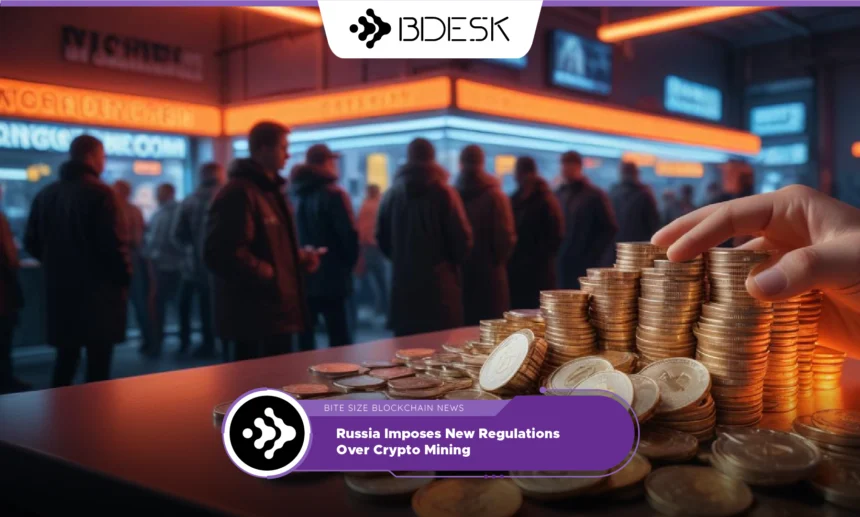A recent law brings stricter oversight to crypto mining in Russia, targeting illicit activities and ensuring energy efficiency.
Government Tightens Grip on Crypto Mining
Russia’s government has introduced a new law signed by President Vladimir Putin, increasing its control over cryptocurrency mining. This regulation mandates that only registered Russian businesses or entrepreneurs engage in mining. The government aims to address concerns over illegal activities like money laundering and ensure energy sustainability by imposing stringent measures.
Registered Entities Only Allowed to Mine
The new regulation restricts crypto mining to registered businesses and individual entrepreneurs in Russia. Mining pools, or groups of miners who collaborate, also fall under government supervision and may face shutdowns if deemed necessary. This step reflects Russia’s intention to monitor and regulate the growing digital assets industry closely.
Combating Financial Crime and Addressing Energy Concerns
The Russian government has made clear that the primary goal is to prevent financial crimes associated with crypto, such as money laundering and terrorist financing. Miners must now report their income and digital holdings to Rosfinmonitoring, Russia’s financial watchdog. This information allows authorities to maintain oversight and ensure compliance with local financial laws.
Concerns about high energy consumption in mining activities have led to additional restrictions. Authorities may limit or halt mining in regions where energy usage becomes problematic. Smaller operators with lower energy needs may continue their activities without registering, allowing some flexibility in smaller operations.
Balancing Security and Economic Stability
The legislation represents an effort by Russia to balance national security with economic interests. The rise of digital assets brings opportunities but also potential risks, and this law seeks to address both sides. Russia wants to promote economic growth while controlling how cryptocurrencies interact with traditional financial structures.
New Framework for Digital Asset Trading
In a notable shift, the law allows trading of digital assets on Russian platforms, including foreign-issued digital financial assets. This adjustment provides miners with a legitimate means to exchange assets, overseen by the Russian Central Bank. The bank holds authority to restrict specific digital assets if they pose threats to the country’s financial stability.
Russia’s Crypto Strategy Amid Sanctions
Amid ongoing Western sanctions, Russia is aiming to integrate cryptocurrencies into its financial system. This regulatory approach suggests that despite geopolitical tensions, Russia sees an opportunity to establish itself in the global crypto market. The Central Bank has highlighted XRP and Ripple as potential cross-border payment solutions, hinting at Russia’s strategic interest in digital assets.
Embracing Global Digital Asset Markets
Russia’s engagement with cryptocurrency could enhance its participation in global financial markets. Though the country hasn’t officially adopted XRP, its recognition of Ripple’s potential for cross-border transactions indicates a forward-looking stance in digital finance.
Disclaimer:
The information provided on 13Desk is for informational purposes only and should not be considered financial advice. We strongly recommend conducting your own research and consulting with a qualified financial advisor before making any investment decisions. Investing in cryptocurrencies carries risks, and you should only invest what you can afford to lose. 13Desk is not responsible for any financial losses incurred from your investment activities.











